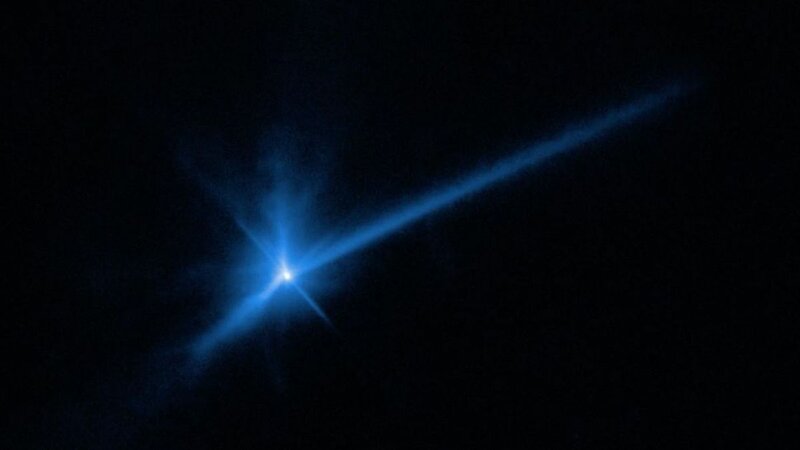https://www.livescience.com/space/asteroids/fallout-from-nasa-s-asteroid-smashing-dart-mission-could-hit-earth-potentially-triggering-1st-human-caused-meteor-shower?utm_term=05C645DB-A321-4D0C-ABE6-FF1619A6E093&lrh=8c5792302b49511d5b55b1aab8a23790f429c91c6d0221b591feff6a06335a85&utm_campaign=368B3745-DDE0-4A69-A2E8-62503D85375D&utm_medium=email&utm_content=D0060F55-9D9C-475D-A47C [login to see] 9C&utm_source=SmartBrief
Millions of tiny space rock fragments may be on a collision course with Earth and Mars after NASA deliberately crashed a probe into a far-away asteroid two years ago, a new study reveals. The celestial shrapnel, which could start hitting our planet within a decade, poses no risk to life on Earth — but it could trigger the first ever human-caused meteor showers.
On Sept. 26, 2022, NASA's Double Asteroid Redirection Test (DART) spacecraft purposefully collided with the asteroid Dimorphos, smashing right into the middle of the space rock at around 15,000 mph (24,000 km/h). The epic impact, which occurred more than 7 million miles (11 million kilometers) from Earth, was the first test of humanity's capability to redirect potentially hazardous asteroids that pose a threat to our planet.



 Science
Science Space
Space Physics
Physics Astronomy
Astronomy



